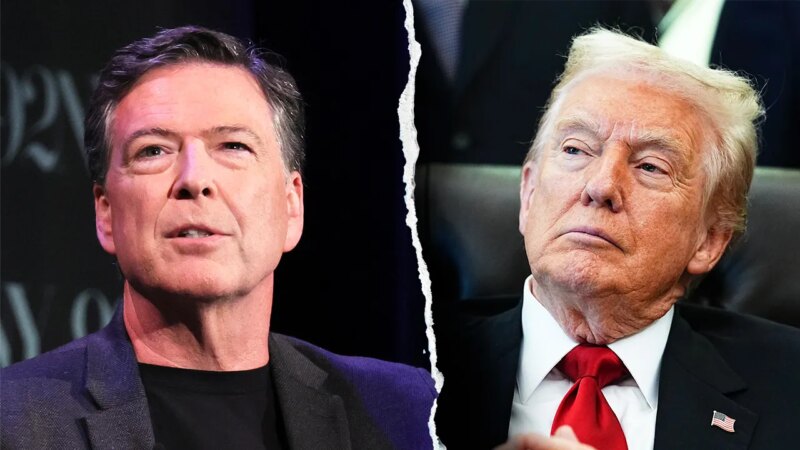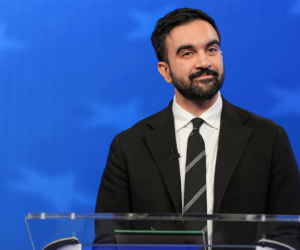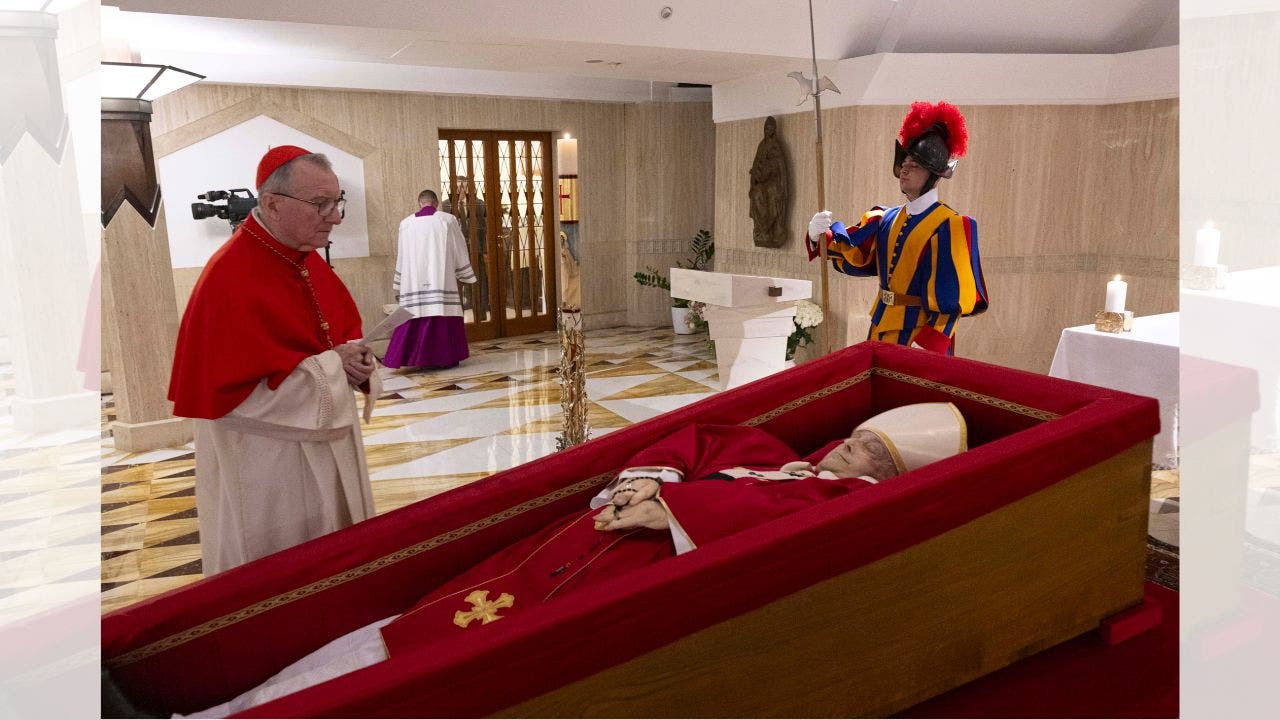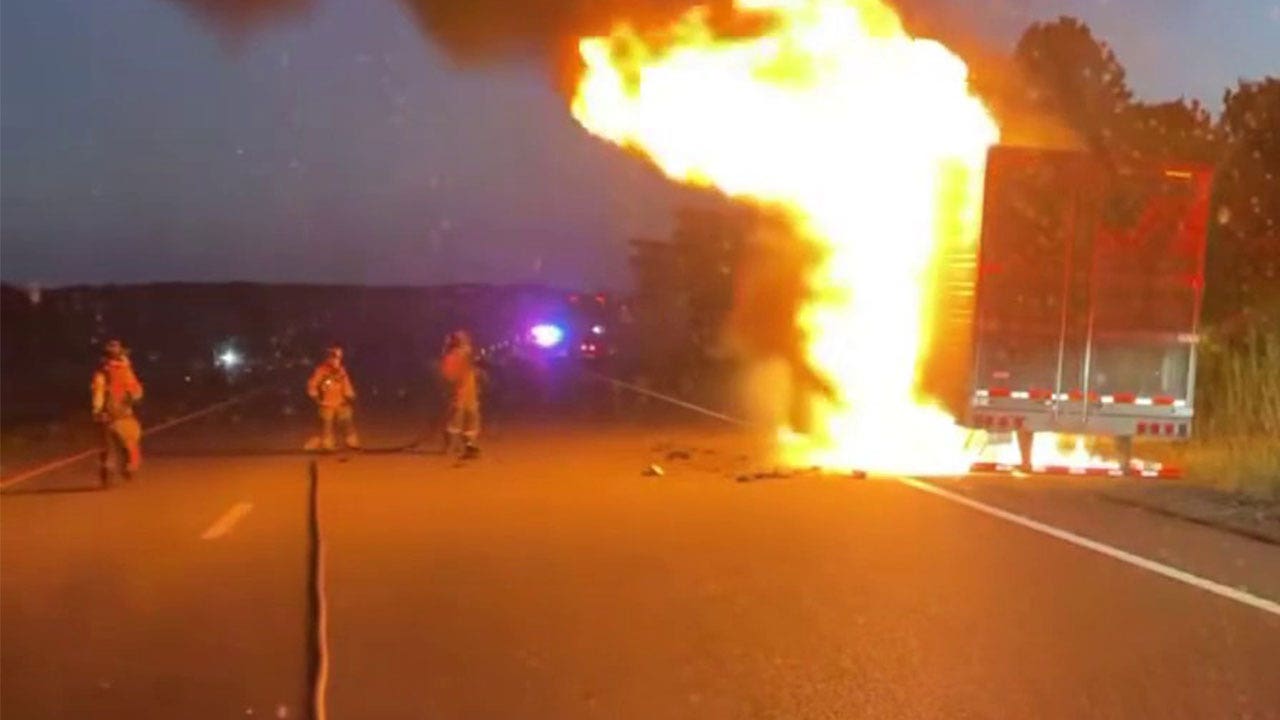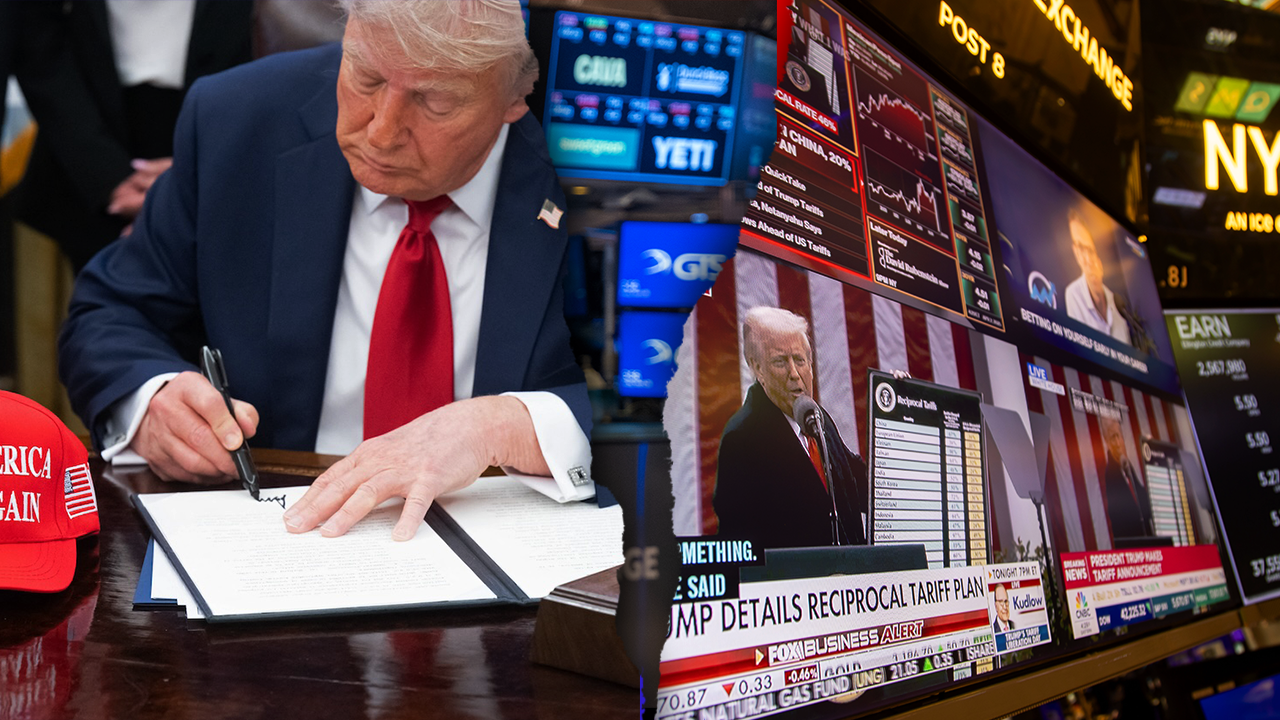Judge drops DOJ cases against James Comey, Letitia James
Mark Meredith reports on Judge Cameron Currie’s ruling that Lindsey Halligan was unlawfully appointed as interim U.S. attorney and order to drop charges against James Comey and Letitia James. Fox News contributor Jonathan Turley weighs in.
NEWYou can now listen to Fox News articles!
If we are living in an age of lawfare, it is fast becoming a war of attrition. The dismissal of the indictments against former FBI Director James Comey and current New York Attorney General Letitia James is the latest twist in the controversial prosecutions of Trump antagonists.
James immediately posted a message celebrating the decision, but she may want to focus on the prepositional phrase following the word “dismissal”: “without prejudice.” The administration may still be able to revive these cases.
James’ victory lap on social media is a fitting addition to the opinion, which emphasized President Donald Trump’s social media postings about these cases. U.S. District Judge Cameron Currie noted that Trump had demanded the indictment of these and other individuals shortly before the charges were handed down.
FEDERAL JUDGE DISMISSES JAMES COMEY, LETITIA JAMES INDICTMENTS
Law seems to have become entirely improvisational in the age of Trump. James and Manhattan District Attorney Alvin Bragg adopted highly novel legal theories to pursue Trump in New York, including Bragg’s revival of a dead misdemeanor charge and its conversion into a multi-count felony indictment. Both cases were denounced by experts across the political spectrum as the raw weaponization of the legal process.
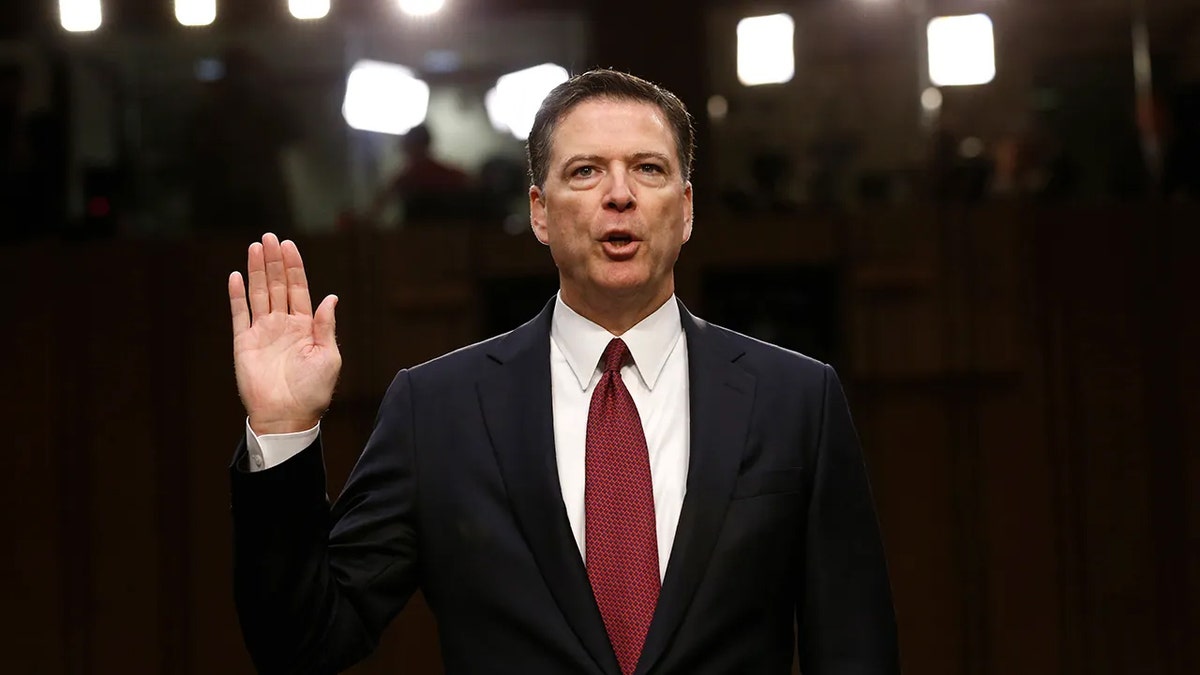
Former FBI Director James Comey. When the Comey and James indictments were filed, many of us in the legal profession noted a couple of problems. (Jonathan Ernst/Reuters)
However, James is entitled to every bit of the due process and procedural protection that she denied Trump. Rushed to completion in the final days before the statute of limitations expired, these indictments proved a target-rich environment for defense counsel.
When the Comey and James indictments were filed, many of us in the legal profession noted a couple of problems. First, the James indictment seemed disjointed after the denial of a key charge. With time running out, Acting U.S. Attorney Lindsey Halligan quickly stitched the remaining counts together and filed the indictment. It was ad hoc and hardly ideal.
COMEY DENIES CHARGES, DECLARES ‘I AM NOT AFRAID’
The main problem we identified was Halligan herself. The former private counsel for Trump was appointed acting U.S. attorney after the removal of her predecessor, Erik Siebert, who reportedly resigned after expressing reservations about the legal basis for the indictment.
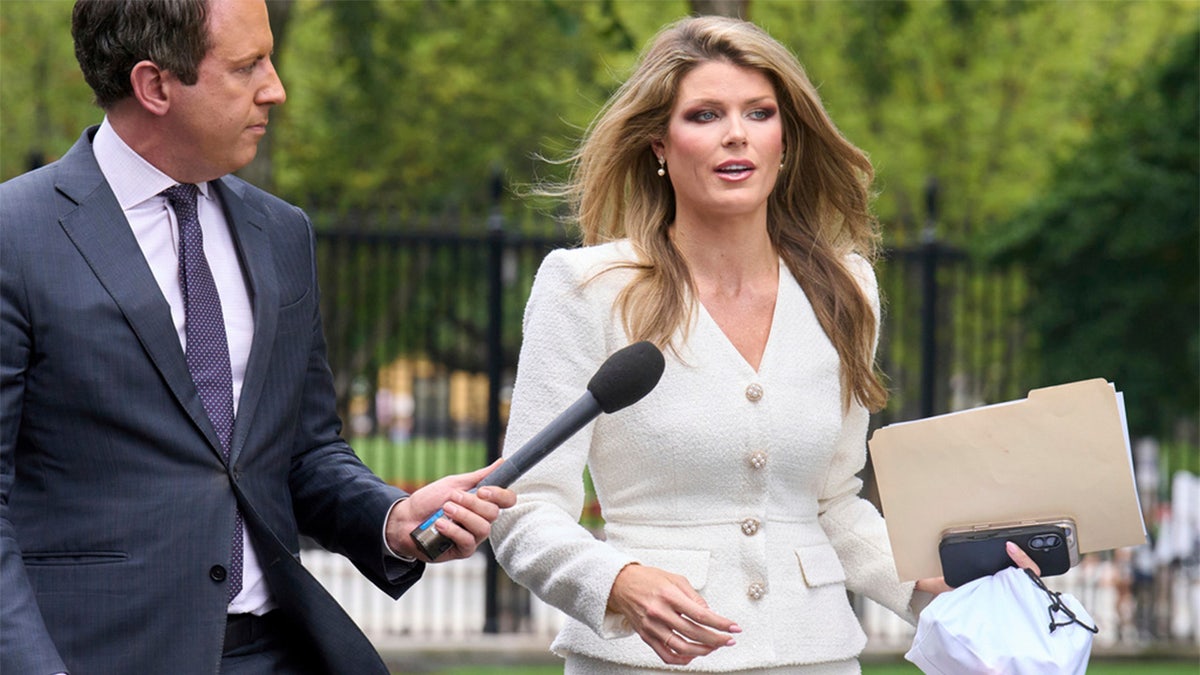
Lindsey Halligan, Acting U.S. attorney and former special assistant to the president, speaks with a reporter outside the White House, Wednesday, Aug. 20, 2025, in Washington. (Jacquelyn Martin/AP)
The problem is that a federal statute, 28 U.S.C. § 546, governs the appointment of interim U.S. attorneys when a vacancy arises. A president has 120 days to appoint such an official while awaiting a Senate-confirmed replacement. Siebert had already used that 120-day period, and the statute mandates that, after its expiration, the district court appoints the acting U.S. attorney.
While the Justice Department has argued in good faith that the law can be more broadly interpreted, other judges have supported the plain meaning, including a New Jersey court that disqualified another former personal counsel for Trump, Alina Habba, from serving as U.S. attorney.
MAMDANI ASSAILS TRUMP FOR ‘POLITICAL RETRIBUTION’ AGAINST LETITIA JAMES IN SWEEPING DEFENSE OF EMBATTLED AG
Judge Currie effectively declared, “Time’s up.” She also noted that the rush to indict followed the president’s social media post expressing anger over the failure to indict these individuals. The president wrote: “What about Comey, Adam ‘Shifty’ Schiff, Leticia??? They’re all guilty as hell, but nothing is going to be done.”
He later took down the post, but the damage was done.
There are still challenges over whether these indictments constitute selective or vindictive prosecutions. The defendants are using the president’s post as Exhibit 1. If Judge Michael Nachmanoff rules that these indictments are invalid for other reasons or constitute selective or vindictive prosecution, there would be no procedural “cure” absent a reversal on appeal.
However, Currie’s decision could be addressed by a new indictment bearing the signature of a properly commissioned assistant U.S. attorney, as long as the court agrees the indictment was timely filed.
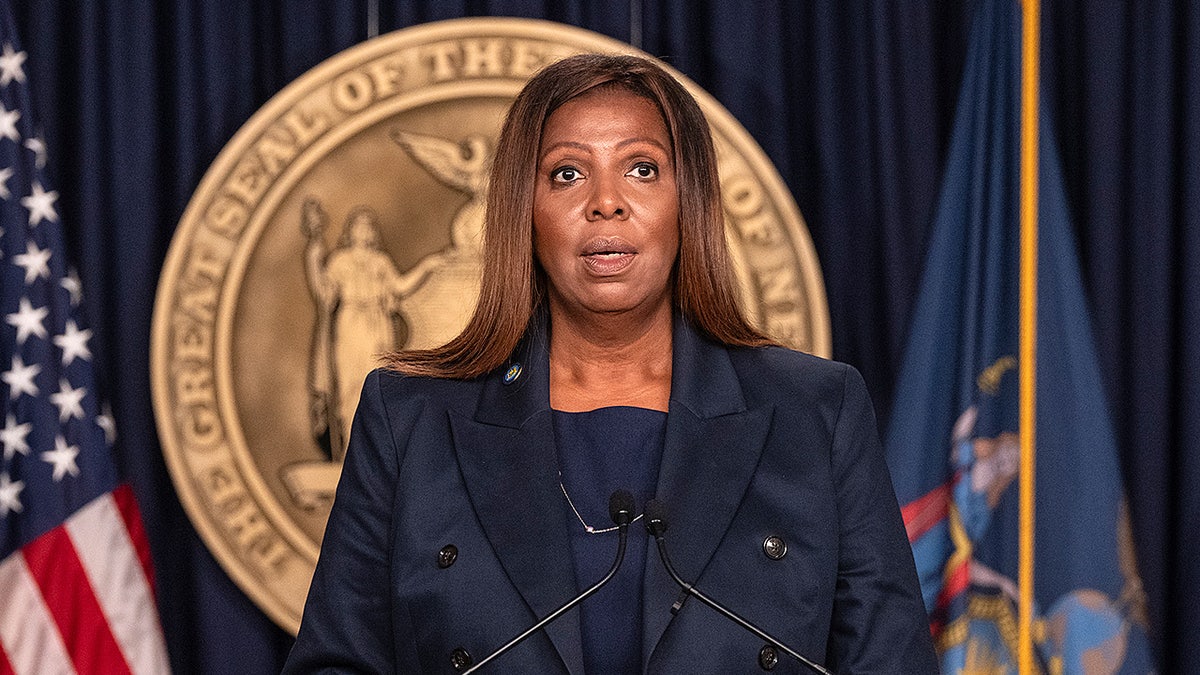
New York Attorney General Letitia James speaks alongside Gov. Kathy Hochul during a press conference in New York City on November 6, 2024, discussing the impact of Donald Trump’s reelection as president. (Lev Radin/Pacific Press/LightRocket via Getty Images)
TRUMP CHEERS DISQUALIFICATION OF ‘CORRUPT’ FANI WILLIS, SAYS CASE IS ‘ENTIRELY DEAD’
None of this means the defendants are innocent of the underlying criminal acts. Rather, these rushed indictments were highly novel—and novelty is rarely good in a criminal indictment.
Notably, some of us have observed that the indictment against former Trump National Security Adviser John Bolton in Maryland is the strongest of the three cases. The administration has indicated it may in fact be adding charges.
CLICK HERE FOR MORE FOX NEWS OPINION
Bolton is also expected to raise claims of vindictive and selective prosecution.

John Bolton, former U.S. national security adviser, left, exits the U.S. district courthouse in Greenbelt, Maryland, on Friday, Oct. 17, 2025. (Eric Lee/Bloomberg via Getty Images)
What is clear is that all three cases are likely to remain in the legal system for years. Indeed, they could easily extend into a new administration. If that administration is led by a Democratic president, all three defendants may anticipate a pardon from Trump’s successor.
It is equally clear that the administration is unlikely to shrug off these cases as damaged goods.
CLICK HERE TO DOWNLOAD THE FOX NEWS APP
First, they need a cure. District courts are unlikely to agree that presidents can daisy-chain appointments indefinitely, with each acting U.S. attorney serving for 120 days like a rotating prosecutorial timeshare. That is particularly true when the authority to appoint under federal law rests with the district courts.
In other words, while the president and many others may view these three as “guilty as hell,” hell knows no fury like a court scorned.
CLICK HERE TO READ MORE FROM JONATHAN TURLEY

